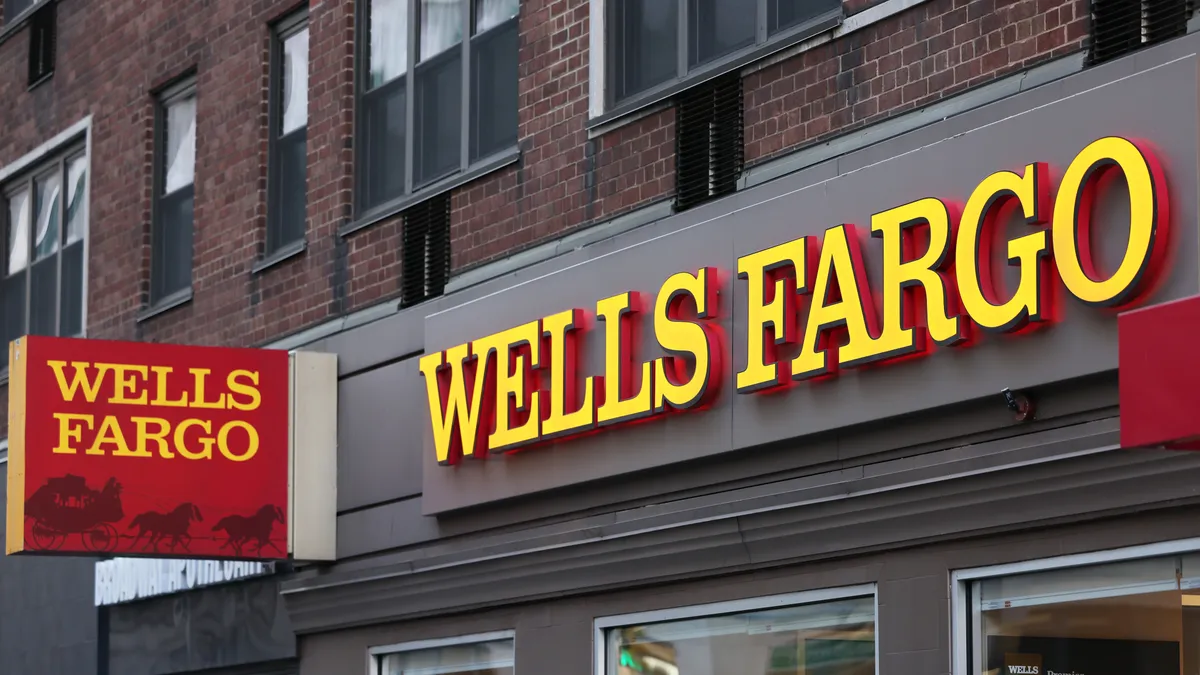Wells Fargo workers who voted to unionize last December began their first-ever contract negotiations with the megabank Tuesday morning.
Workers at a branch in Albuquerque will bargain with their Wells Fargo company lawyers and human resources managers over three days following their 5-3 vote last year to join the Communications Workers of America’s Wells Fargo Workers United.
The workers, focused on improved working conditions and staffing, are represented at the bargaining table by a team of five WFWU-aligned employees elected from branches that voted “yes” in their own union elections.
One member of the bargaining team, senior premier banker Sabrina Perez, is on her home turf. She’s worked at the branch in Albuquerque for 11 years.
Perez told The Wall Street Journal last year that she and her colleagues began talking seriously about unionization because bankers in her branch were pulling double duty as tellers, and customers complained of long wait times. But when workers raised their concerns to management, they were told nothing would be done, Perez said.
Perez is joined on the national bargaining team by bankers Scott Keehn of the Fairfax, Delaware branch; Ruthie Roberts of the Apopka, Florida branch; Rosa Cervantes of the National City, California branch; and Jared Homan of the Springhill, Florida branch.
Since Albuquerque’s landmark vote to unionize, 22 branches have followed suit, and a Toms River, New Jersey branch has an election in waiting. Two additional branches held union elections, but voted against it, and a third withdrew its election altogether.
Nick Weiner, WFWU organizing director, said that the national bargaining team will represent each of the branches in their own collective bargaining talks with Wells Fargo.
“In our view, what's happening in Albuquerque is really setting the stage for a national contract,” Weiner said. “We've got a theme of ‘one union, one contract.’ We're going to stick together, and we're stronger together, as a rising tide lifts all boats.”
Rebecca Givan, associate professor of labor studies at Rutgers University, told Banking Dive that WFWU’s efforts are akin to those at Starbucks’, for which 500 locations have voted to unionize since 2021.
Unionization efforts for both companies have been location by location, few employees by few employees, she noted, with union drives starting as word of the efforts spread.
“Just like Starbucks, it's an initial push into an industry that's been almost entirely non-unionized, so it's very significant. Even though the numbers look fairly small compared to the whole banking industry and the number of Wells Fargo locations, its influence is outsized,” Givan said.
Weiner said he expects the three-day bargaining session to include proposal exchanges, and beget plans for another session, to be scheduled soon.
“It's actually encouraging that they'll start by bargaining for three days. One of the tactics [employers use] is not having sufficiently long bargaining sessions to get anything done. It seems like they are devoting enough time,” Givan said of the talks.
Agreeing on a first contract can take more than a year, she said, with employers gaming to “drag out the negotiation as long as possible.
“If we hear anything about employers’ response to unionization, what we tend to hear is about them trying to persuade workers to vote ‘no,’ but they often put just as much effort into making the negotiations as protected as possible. They want workers to feel that the whole effort is futile.”
A Wells Fargo spokesperson told Banking Dive that the bank is committed to bargaining in good faith.
“Wells Fargo is proud of the competitive compensation, comprehensive benefits, and attractive career development opportunities we provide our employees,” the spokesperson said. “Our goal is to work together toward a fair contract for all involved stakeholders.”














